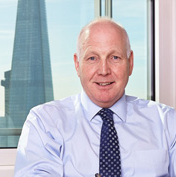Glyn Jones, New Independent Non-Executive Chairman at Old Mutual Wealth
| For Fórmate a Fondo | 0 Comentarios

Old Mutual Wealth appointed Glyn Jones as the independent non-executive Chairman of the Old Mutual Wealth Board, subject to regulatory approval.
He will replace Bruce Hemphill, CEO of Old Mutual plc, who is stepping down as Old Mutual Wealth’s Chairman. Bruce will continue to be a director of the Old Mutual Wealth Board. Glyn will be working closely with Bruce as Old Mutual plc seeks to execute the managed separation of the wealth business.
Glyn is presently the Chairman of Aspen Insurance Holdings, a New York Stock Exchange listed business, and the Chairman of Aldermore Group, the challenger bank that went public in 2015 on the London Stock Exchange. Previous non-executive roles included being the Senior Independent Director on the Direct Line Insurance Group, a board he joined ahead of its listing on the London Stock Exchange as a FTSE 100 company. Other past chairmanships include: Hermes Fund Managers, BT Pension Scheme Management and Towry, a financial planning and wealth advice business.
Glyn started his career with Deloitte, Haskins & Sells, a predecessor firm to PWC, where he was a senior partner in the consulting practice specialising in financial services. In 1991, he joined Standard Chartered Bank where he ran their international private banking business which was headquartered in Hong Kong. On his return to the UK in 1997, he joined NatWest Bank and was appointed CEO of the Coutts Group, the domestic and international private banking business, as well as having responsibility for NatWest Investments and NatWest Stockbrokers. In 2001, Glyn joined Gartmore Investment Management as CEO until 2004.
Paul Feeney, CEO of Old Mutual Wealth, said: “I am very pleased that Glyn has agreed to join the Old Mutual Wealth Board as Chairman. His depth and breadth of understanding of the financial services industry, which has been gained from leading top industry companies over the last 20 years, will be of great benefit to our business. He also brings extensive experience of chairing both public and private boards. I look forward to working with Glyn as we build on the momentum that exists to transform Old Mutual Wealth into a truly outstanding business. I believe we have an exciting future ahead of us.”
Jones added: “I am delighted to be invited to be the new Chairman of Old Mutual Wealth. This is a unique and leading wealth management business which is well placed to succeed in the fast developing and exciting industry in which it operates. I look forward to helping Old Mutual Wealth in its development and playing my part, alongside my fellow board directors, in supporting and guiding Paul and his executive management team, as well as working closely with Old Mutual plc to help them achieve their strategic objective of managed separation.”
Old Mutual Wealth is a subsidiary of Old Mutual plc. Old Mutual plc is in the process of executing a managed separation strategy that will separate the Group into its four constituent businesses: Old Mutual Wealth, Old Mutual Emerging Markets, Old Mutual Asset Management and Nedbank.








